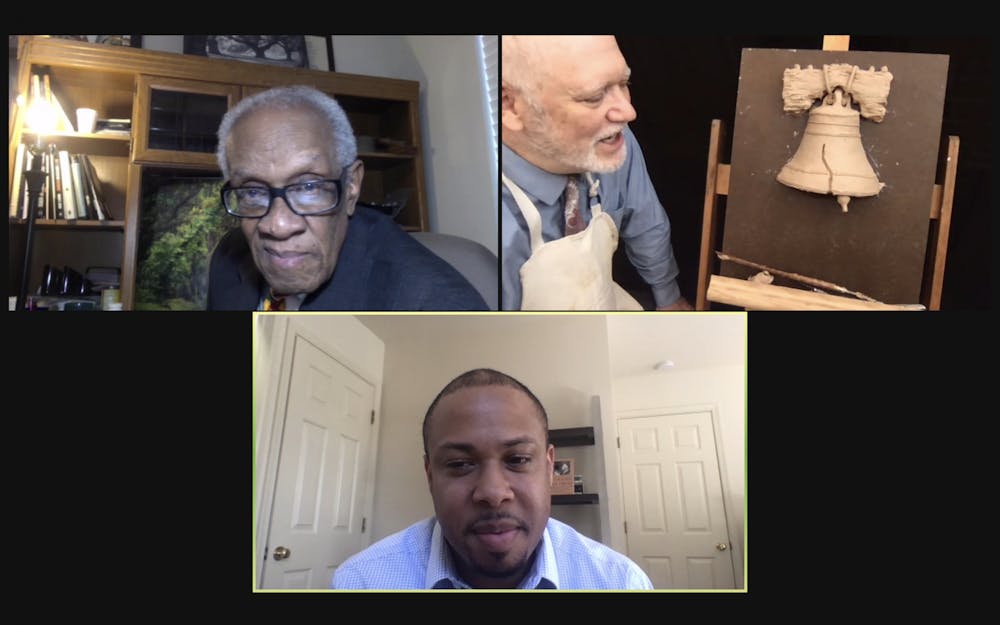Virgil Wood, author of the book “In Love We Still Trust: Lessons We Learned from Martin Luther King Jr., and Sr." reflected on racism, religion and his own experiences fighting for civil rights in an hour-long webinar held Thursday. During the discussion, Daniel Fairbanks, Utah Valley University biology professor and sculptor, created a clay sculpture of the Liberty Bell as a representation of Wood’s discussion on the importance of common voice — which King represented and led during the Civil Rights Movement.
The webinar was part of a two-week series of events hosted by the University’s Division for Diversity, Equity, and Inclusion in celebration of King and his legacy. The event was held virtually and split into two parts — the first 30 minutes were dedicated to Wood’s speech and the last 30 minutes were saved for questions from the audience.
Wood, a Virginia native who attended Hillsboro School in Crozet and Albemarle Training School in Charlottesville, pursued a doctorate in education at Harvard University. He then became a community organizer for Virginia and helped coordinate the historic March on Washington, the protest in support of civil rights legislation that drew more than 200,000 individuals and was the location of King’s famous “I Have a Dream” speech.
Wood worked alongside both King Jr. and Martin Luther King Sr. for over 10 years and reflected on the lasting impact of King Jr.’s work.
“King’s true legacy, the beloved community growing the beloved economy … may be what the world is hungry for right now,” Wood said.
In context of the COVID-19 pandemic, Black Lives Matter movement and former president Donald Trump’s term, Wood said he believes that periods of suffering require reflection on the repetition of history and the presence of community.
Wood accredited this realization to King Jr. and King Sr., both pastors, who he said provided valuable insight about the presence of religious ideas and the importance of peace and community when protesting equality. Reflecting on the power of his own local community of African Americans in Virginia during the Civil Rights Movement, Wood emphasized the importance of unity in wanting to enact change.
“As I think back on it, it says a lot about my community — the health of my community — that they said, ‘We got to do something, we’re not just going to let this go, something has to be done,’” Wood said.
However, despite strides over the years towards justice and equality for everyone in America, Wood said he believes that the country has room to grow and for all people to become more unified.
“America has never been great,” Wood said. “It’s been good but not great.”
During a question and answer period, Wood discussed his faith and church work — which he had dedicated much of his life apart from politics and education to — and said they have been a strong source for his hope in the country. Wood cited King Jr. and Sr., who also kept religion as a large priority in their lives and played a part in their morals concerning equality and politics.
By the end of the webinar, Fairbanks’ sculpture of the Liberty Bell, which he produced with clay within the duration of Wood’s presentation, was revealed. The correlation between the bell and King, as described by Wood and Fairbanks, was the power and potential of common voice to create change — the crack in the bell represented the impact of a community being vocal about their beliefs and desire for change, which during the Civil Rights Movement was a protest for equality led by King.






